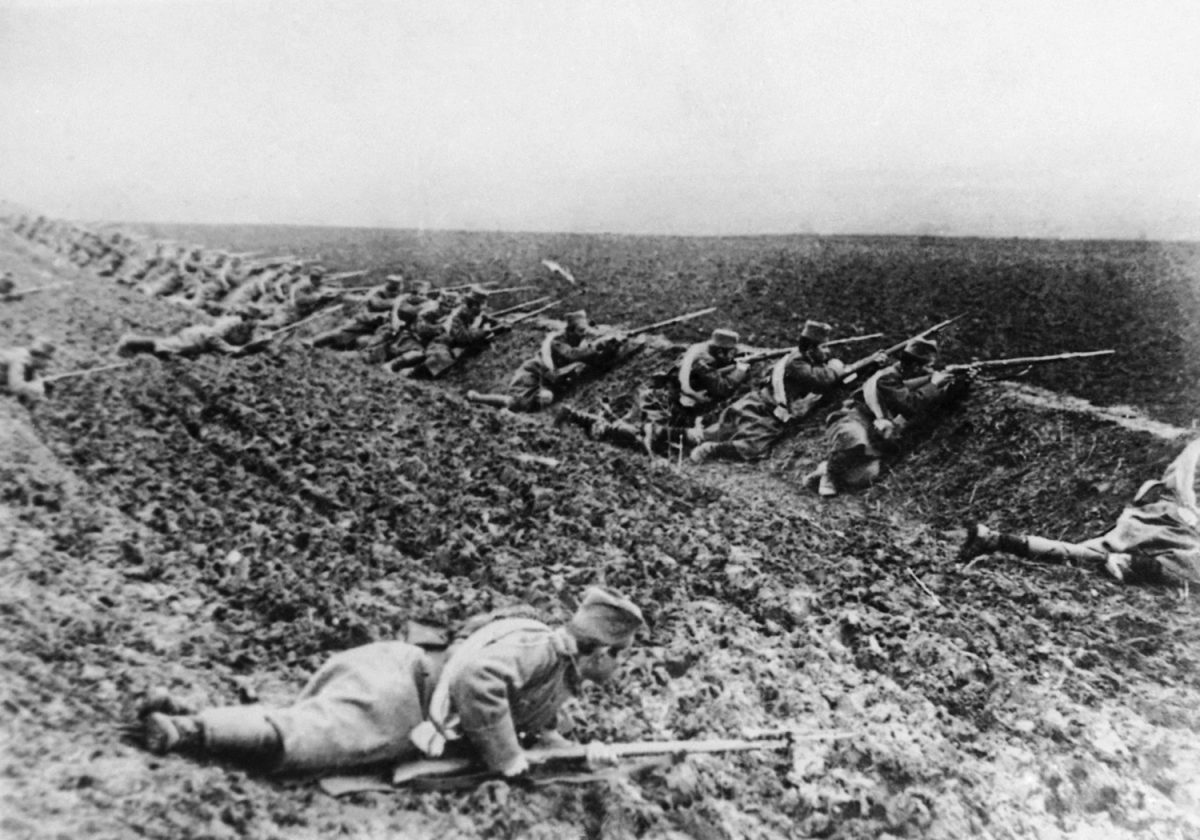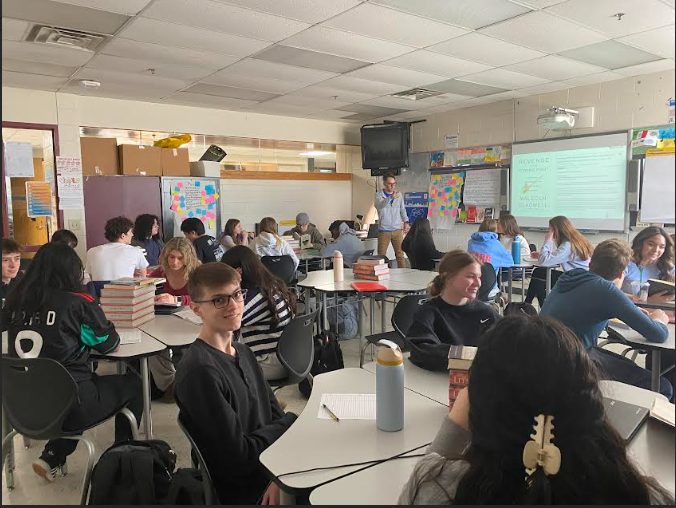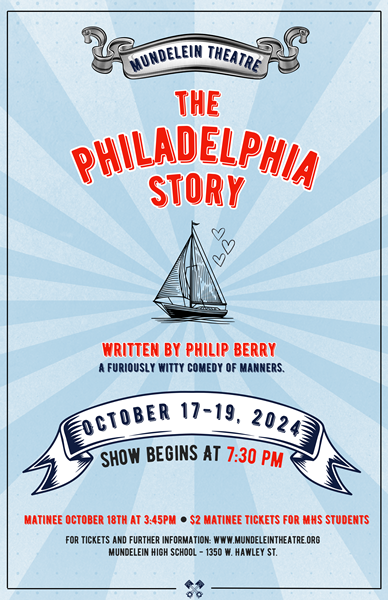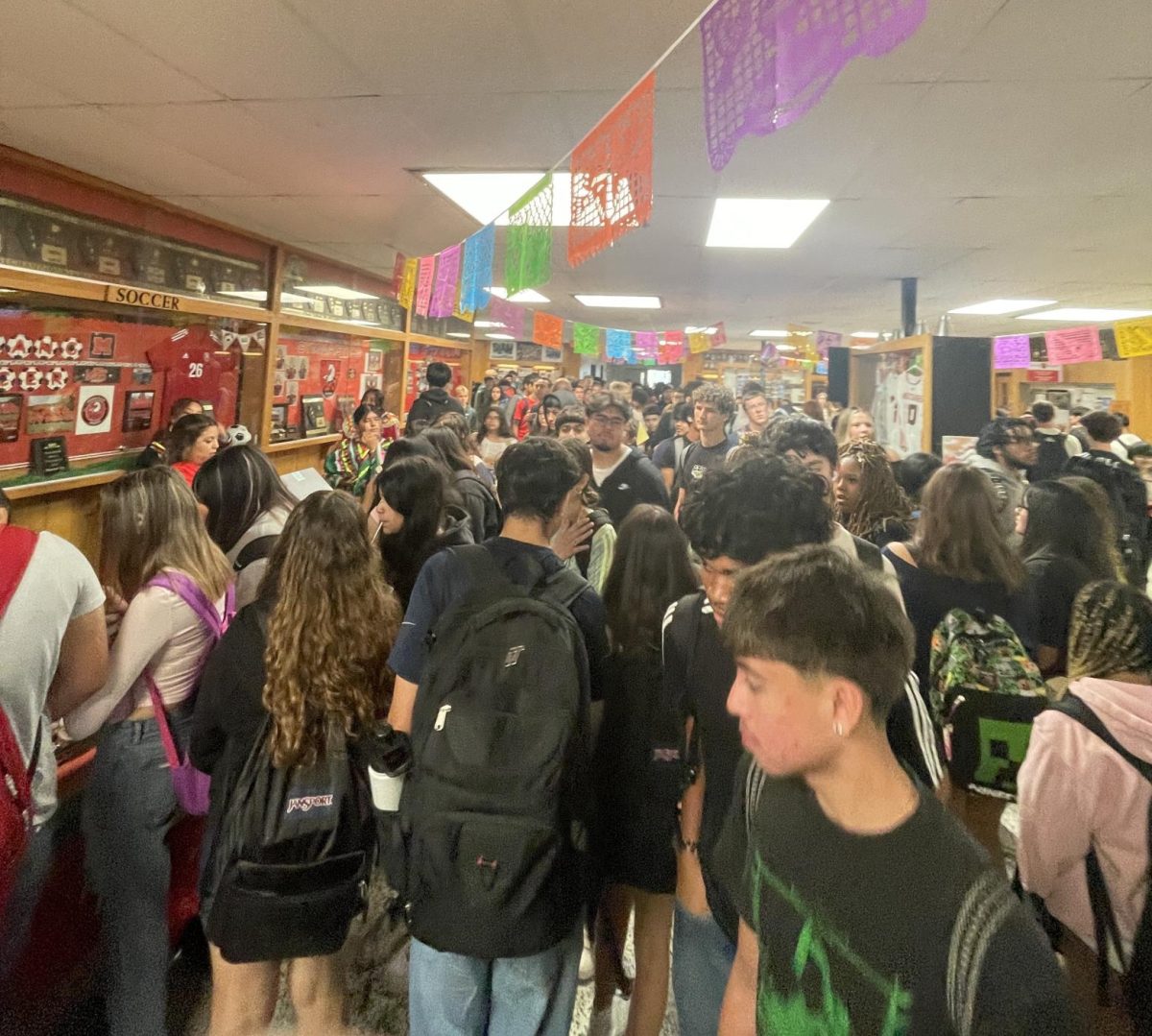110 years ago, on June 28th, 1914, Archduke Franz Ferdinand of Austria-Hungary was assassinated by Serbian nationalist Gavrilo Princip, triggering a series of events that led to the breakout of the war to end all wars, taking about 40 million military and civilian lives.
However in many ways the assassination was just the spark, not the fuel which had been building arguably since Germany’s unification in 1871, upsetting the balance of power.
“Most likely (the war would eventually happen even if Ferdinand wasn’t assassinated) just because you had so many empires and so much conquest for territory that imperialistic countries would keep adding and adding and eventually kind of run out of places to go without having a conflict with anybody else…the styles of government they had in the imperialistic and militaristic philosophies made the war inevitable,” said Thomas Kuhn, social studies teacher, also attributing militarism, as all countries were spending large amounts of their army and navy.
Ferdinand, the heir of Austria-Hungary, was killed in Sarajevo, a city then in Austria-Hungary but now the capital of Bosnia and Herzegovina. While the first attempt failed, by pure coincidence Ferdinand’s car took a wrong turn and broke down in the street where Princip (a member of the Serbian nationalist group which had organized the hit) was standing, Princip promptly shot the Archduke and his wife, killing both.
The most direct cause of the war was nationalism, an idea which had shaped the events of the century before, with events such as the unification of Germany and Italy and independence movements in the ailing Ottoman Empire and Austro-Hungarian Empire.
Kuhn explained that the cause was “The nationalist movement by the Serbians.. to establish a state outside of the Austro-Hungarian Empire for Serbian nationalists to have a Serbian nation…So, targeting [the] Archduke would be a way to achieve that.”
Austria-Hungary blamed the assassination on Serbia, sending demands which would have turned Serbia into a puppet and were meant to be rejected. Serbia accepted all but one, which Austria viewed as a rejection. Serbia and Austria then began to mobilize and Austria declared war on the 28th of July. Due to the systems of secret alliances and guarantees, this declaration caused a ripple effect across Europe as Russia backed Serbia in support of Pan-Slavism, prompting Germany to back Austria, and so forth. By August 4th the powers of Europe were fully at war with Great Britain, France, Russia, and Serbia in the Triple Entente/Allies against Germany, Austria Hungary, and the Ottoman Empire in the Central Powers.
As the war went on Montenegro, Japan, Belgium, Luxembourg, Italy, Portugal, Romania, Greece, and Brazil joined the Allies in that order. The United States joined in 1917 but as an “associated power” of the Allies rather than a full member, hoping to avoid foreign entanglements. Bulgaria also eventually joined the Central Powers.
The governments expected a quick war, that they would be “Back by Christmas”, and the population, full of nationalism, was excited for the war, at least at first before the high casualties and food shortages.
“They’re (the population) going to go fight for their country, they’re going to go stand up for their national identity. Little do they know that a third of their population in Europe is going to die. An entire generation of soldiers is going to go…A lot of people overlook the impact on India and how they were really heavily hit by the war,” said Andrew Hood, Social Studies teacher.
Germany aimed to take out France rapidly by violating Belgium’s neutrality and then move to take out Russia in what was called the “Schlieffen Plan.” Instead the Germans ended up getting bogged down in the west in trench warfare but eventually took out Russia in 1917, leading to the establishment of the Soviet Union.
“The most hideous fighting in global history up to that point. The trench warfare, more or less, was invented in this phase…with disease, weather, cramped conditions, rats, trench food, no man’s land, mustard gas, machine gun fire, aerial fire, soon after tanks will be invented. I mean, it just goes on and on and on of how terrifying it becomes…after a year, they realize ‘oh, oh, we’re no longer in the 19th century’. Welcome to the 20th century. This is something new and horrifying,” said McCarthy.
Hood contrasted the clear evil of the Axis in WW2 to the more gray sides in WW1, “I would say World War I it’s hard to argue that [it’s] good versus evil…it’s a war of perspective, depends on which side you fall on.”
Both groups were brutal colonial powers, and while Austria-Hungary and Germany, both autocratic monarchies, were in the Central Powers, another, Russia, fought with the democratic French and British on the Triple Entente.
In 1918, with the Central Powers facing a revitalized Entente due to fresh American troops, being pushed back on most fronts, experiencing high food shortages due to the largely British blockade, and with their states collapsing to revolt and revolution, they sued for peace.
The peace treaties that ended the war are notorious today for simply sowing the seeds of World War Two in its harsh punishment of Germany, which lost territory in Europe, all its colonies, assumed full blame for war, and had to pay crippling war reparations. The effects of this treaty combined with the Great Depression led to the rise of Adolf Hitler. Other countries, such as Italy and Hungary also felt slighted by the treaty, further contributing to the outbreak of WW2 20 years later.
While the system the victors hoped to prevent another war, the League of Nations, ended up failing, its successor, the United Nations has been far more influential.
The war’s end further affects us today in what it did in the Middle East, with Britain and France breaking their promise to the Sharif of Mecca of a large Arab state in favor of taking more land for themselves, sowing resentment. In particular, Britain got Jerusalem from the Ottomans, eventually leading to the founding of Israel.
The attitude of the population then has an eerie similarity to us today in how they were sleepwalking into one of the worst conflicts in human history, as McCarthy explained, “I think today, maybe it’s not that all Americans are extremely militaristic and nationalist and so on. I think the difference now is that there’s a different delusion, and that is we’re just not paying attention. People don’t pay attention to foreign policy that much.”








